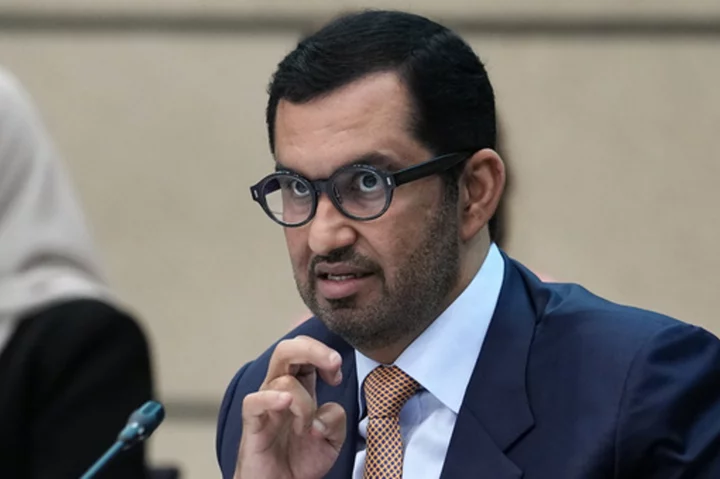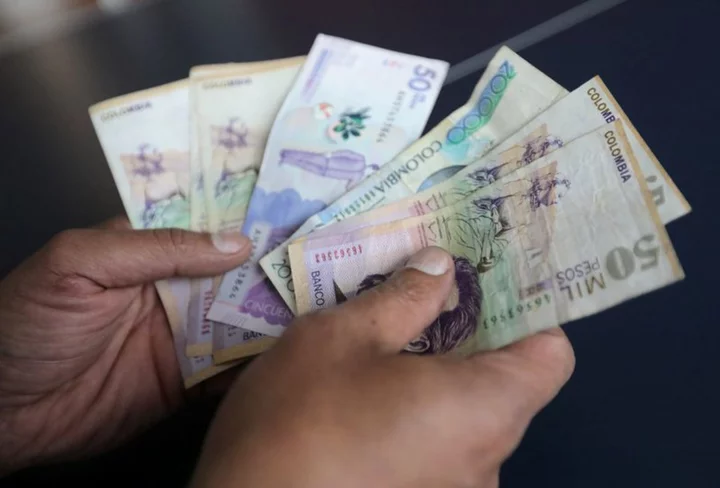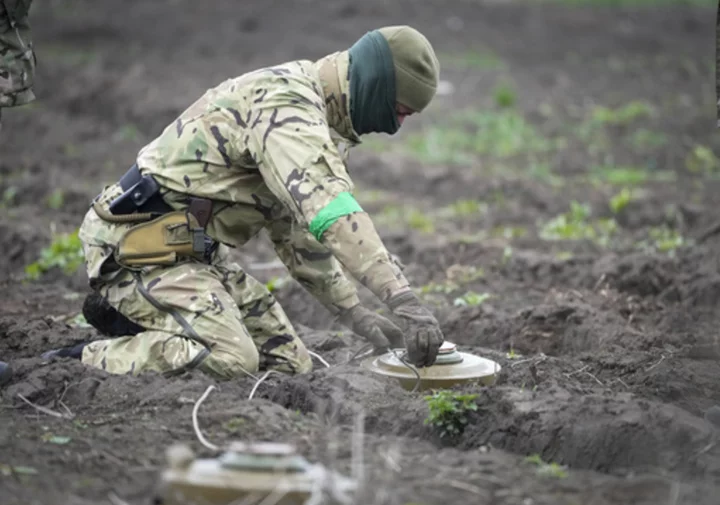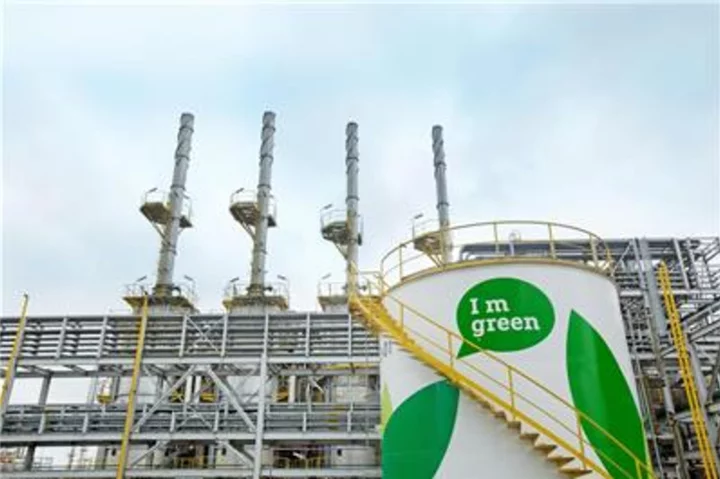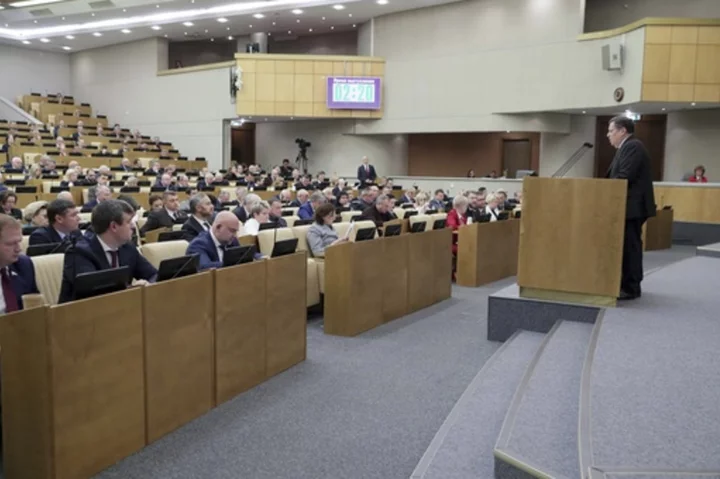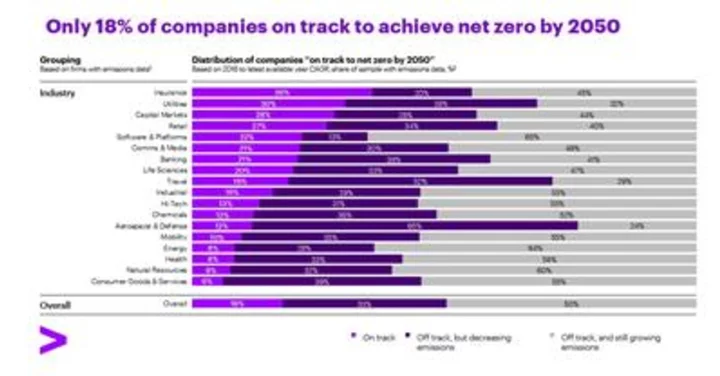BERLIN (AP) — The head of this year’s United Nations climate talks called Thursday for governments and businesses to tackle global warming by reducing greenhouse gas emissions in all regions and sectors if they want to stop the planet from passing a key temperature limit agreed on more than seven years ago.
Sultan al-Jaber of the United Arab Emirates, who also heads one of the country's state oil companies, told senior officials from Europe, Canada and China gathered in Brussels that record-breaking heat seen across the world recently shows the need for urgent action to curb emissions.
Laying out his strategy for the upcoming COP28 global climate talks in Dubai this fall, al-Jaber said that leaders “must be brutally honest" about what has caused the sharp rise in temperatures since pre-industrial times and how to stop them from climbing further.
While many fossil fuel companies have pledged to reduce direct and indirect emissions from their operations — known as scope 1 and 2 — many have refused to take responsibility for so-called scope 3 emissions resulting from sources they don't own or control, such as consumers using their gas. The latter make up the majority of emissions, and cutting those effectively means reducing demand for fossil fuels.
"We need to attack all emissions, everywhere. One, two and three,” al-Jaber said, adding that he plans to bring together governments, major energy producers and heavy emitting industries to develop a practical plan for limiting global warming to 1.5 degrees Celsius (2.7 Fahrenheit) in line with the 2015 Paris climate accord.
Scientists say achieving this target requires halving global emissions by 2030 and current efforts are far off track. Al-Jaber urged governments to come forward with more ambitious national targets for cutting emissions in the next few months.
Climate campaigners cautiously welcomed the plan.
“This is a much-needed kick up the backside from Sultan al-Jaber, to get counties to upgrade their climate targets by September," said Illari Noriega of the anti-poverty group Christian Aid.
“The climate is showing that we need to be acting far far quicker than the current slow progress,” she said. People are dying due to terrible drought in East Africa, more than 100 million people are now under a heat warning in the United States and a road worker in Italy became the latest fatality of a lethal heat wave across Europe this week.
But some expressed concern at al-Jaber's call to phase down “unabated fossil fuels” and promote “clean energy solutions” — terms they fear are designed to leave loopholes for oil and gas companies to keep up production.
Al-Jaber said the world must “use every emission-busting tool available, including nuclear, battery storage and carbon capture and removal technologies, especially for the hardest-to-abate sectors.” Experts have expressed skepticism that carbon capture technology touted by the fossil fuel industry and some governments can deliver the reductions necessary to meet that goal in the near term.
“What we need to see at COP28 is a commitment by governments to phasing out all fossil fuels, since that is the only way to keep the 1.5 degree target alive,” said Petter Lydén of the campaign group Germanwatch.
Al-Jaber reiterated calls for a sharp increase in renewable energy production and funds to help developing countries make the transition away from polluting fuels and cope with the impacts of climate change.
The European Union's top climate official, Frans Timmermans, warned that more public and private funds were still spent on fossil fuels than on preventing and adapting to climate change.
“We are subsidizing an attack on all of humanity,” he said. "We’re investing in a worse future, not a better one. We’re paying to put our children and grandchildren in harm’s way.”
Timmermans warned that with global warming picking up faster than feared, disrupting weather patterns across the planet and hitting the vulnerable hardest, governments need to show they have a credible plan to tackle the crisis.
“The one thing we need to avoid, and we’re very close, we’re very close, is that our citizens fall into despair about the climate crisis,” he said.
Timmermans said that the EU wants to commemorate the victims of the climate crisis each year on July 15, the anniversary of a deadly flood that claimed more than 200 lives in Germany, Belgium and the Netherlands two years ago.

